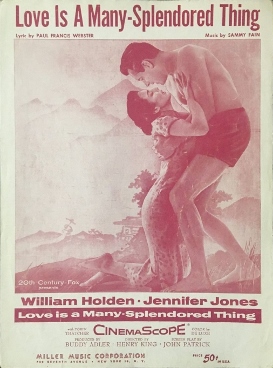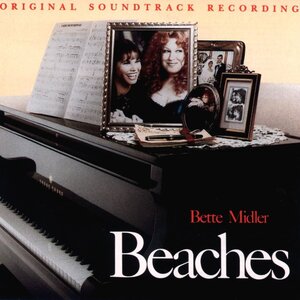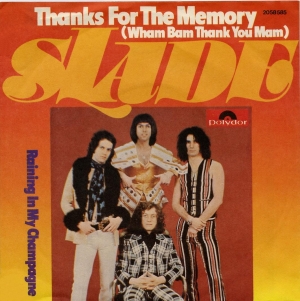
The Towering Inferno is a 1974 American disaster film directed by John Guillermin and produced by Irwin Allen, featuring an ensemble cast led by Paul Newman and Steve McQueen. It was adapted by Stirling Silliphant from the novels The Tower by Richard Martin Stern and The Glass Inferno by Thomas N. Scortia and Frank M. Robinson. In addition to McQueen and Newman, the cast includes William Holden, Faye Dunaway, Fred Astaire, Susan Blakely, Richard Chamberlain, O. J. Simpson, Robert Vaughn, Robert Wagner, Susan Flannery, Gregory Sierra, Dabney Coleman and Jennifer Jones in her final role.

20th Century Fox Records was a wholly owned subsidiary of film studio 20th Century Fox. The history of the label covers three distinct 20th Century Fox-related operations in the analog era, ranging chronologically from about 1938 to 1981.

Maureen Therese McGovern is an American singer and Broadway actress, well known for her renditions of the songs "The Morning After" from the 1972 film The Poseidon Adventure; "We May Never Love Like This Again" from The Towering Inferno in 1974; and her No. 1 Billboard adult contemporary hit "Different Worlds", the theme song from the television series Angie.

"Reflections" is a 1967 song recorded by American soul music group The Supremes for the Motown label. The single release was the first Supremes record credited to "Diana Ross and the Supremes", and the song was one of the last Motown hits to be written and produced by Holland–Dozier–Holland before they left the label.

"Love Is a Many-Splendored Thing" is a popular song with music by Sammy Fain and lyrics by Paul Francis Webster. The song appeared first in the movie Love Is a Many-Splendored Thing (1955), and it won the Academy Award for Best Original Song in 1956. From 1967 to 1973, it was also used as the theme song to Love is a Many Splendored Thing, the soap opera based on the movie.

"The Morning After" is a song written by Al Kasha and Joel Hirschhorn for the 1972 film The Poseidon Adventure, winning Best Original Song at the 45th Academy Awards. Following this success, Maureen McGovern recorded a single version that became a No. 1 hit in the US for two weeks during August 1973, with Gold record sales. Billboard ranked it as the No. 28 song for 1973.
"The Continental" is a dance to a song written by Con Conrad with lyrics by Herb Magidson, and was introduced by Ginger Rogers and Fred Astaire in the 1934 film The Gay Divorcee. "The Continental" was the first song to win the Academy Award for Best Original Song. In the film it was sung by Ginger Rogers, Erik Rhodes and Lillian Miles.
"Buttons and Bows" is a popular song with music written by Jay Livingston and lyrics by Ray Evans. The song was published on February 25, 1948 by Famous Music Corp., New York. The song was written for and appeared in the Bob Hope and Jane Russell film The Paleface and won the Academy Award for Best Original Song. It was originally written with an Indian theme, but was changed when the director said that would not work in the movie. It was a vocal selection on many radio programs in late 1948. It was reprised in the sequel, Son of Paleface, by Roy Rogers, Jane Russell and Bob Hope. In 2004 it finished #87 in AFI's 100 Years...100 Songs survey of the top tunes in American cinema.

"Somebody Loves Me" is a popular song, with music written by George Gershwin, and lyrics by Ballard MacDonald and Buddy DeSylva. The song was published in 1924 and featured in George White's Scandals of 1924.

Merry Christmas is the seventh studio album recorded by Motown girl group The Supremes, and released on Motown Records in November 1965. The LP, produced by Harvey Fuqua, includes recordings of familiar Christmas songs such as "White Christmas", "Santa Claus Is Coming to Town", "My Favorite Things", and "Joy to the World". Two originals, "Children's Christmas Song" and "Twinkle Twinkle Little Me", were issued as a single. Neither Wilson nor Ballard sing on the original 1965 release of "Merry Christmas". They were too tired from their appearance at the Copacabana, so the Andantes were used instead.
"Let's Fall in Love" is a song written by Harold Arlen (music) and Ted Koehler (lyrics) for the film Let's Fall in Love and published in 1933. In the film, it is heard during the opening credits and later sung by Art Jarrett and chorus, and by Ann Sothern.

"I Won't Last a Day Without You" is a song by The Carpenters with lyrics written by Paul Williams and music composed by Roger Nichols. It was released in the U.K. in September 1972, paired with "Goodbye to Love" as a double-A side. The single reached No. 9 and spent 14 weeks on the chart. It was later released in the U.S. and became a hit single for them in 1974, reaching No. 11 on the Billboard Hot 100 chart and number one on the easy listening chart. It was the Carpenters' ninth No. 1 on the easy listening chart.

"We May Never Love Like This Again" is a song written by Al Kasha and Joel Hirschhorn for the 1974 disaster film The Towering Inferno. It won the Academy Award for Best Original Song, and was performed by Maureen McGovern both for the film score and, briefly, in the film itself with McGovern portraying a singer.

20th Century Masters – The Millennium Collection: The Best of Maureen McGovern is a 12-track collection of songs that Maureen McGovern recorded for 20th Century Records, which was the first label that she signed with. All seven of her singles for the label are featured on this CD, two of which make their first appearance on an album. Inside the album cover are McGovern's discography for 20th Century and a biographical essay written by Gordon Pogoda. Eleven of the 12 songs make their compact disc debut on this release and had only been previously available on LPs and 45s. Three of McGovern's movie themes are featured on the CD, while a fourth movie theme that McGovern recorded for 20th Century Records, "Wherever Love Takes Me," can be found in the CD format on the Elmer Bernstein soundtrack to Gold. This CD covers McGovern's recording period from 1972 to 1975 and includes seven songs from her 1974 LP Nice to Be Around.

Beaches: Original Soundtrack Recording is the soundtrack to the Academy Award-nominated 1988 film starring Bette Midler and Barbara Hershey. Midler performs most of the tracks on the album, released on the Atlantic Records label. The album also reunited her with producer Arif Mardin. It features one of Midler's best-known songs, the ballad "Wind Beneath My Wings", which was a number-one hit.

Endless Love: Original Motion Picture Soundtrack is the soundtrack album to the film of the same name. The album was released worldwide by Mercury Records and PolyGram in 1981.

"Carolina Moon" is a popular song, written by Joe Burke and Benny Davis. Written in 1924, the song was first recorded in 1928 by American crooner Gene Austin whose version charted for 14 weeks, seven of them at #1. The song was copyrighted in 1928, so it entered the public domain on January 1, 2024.

"We'll Never Have to Say Goodbye Again" is a song by Jeffrey Comanor from the album A Rumor in His Own Time, which debuted in September 1976. Written by Comanor, the song describes a couple who spend a night together, one which the narrator wishes would "never end". Both the song, which Epic Records released as a single, and album failed to chart.

"Thanks for the Memory (Wham Bam Thank You Mam)" is a song by the British rock band Slade, released in 1975 as a non-album single. It was written by lead vocalist Noddy Holder and bassist Jim Lea, and produced by Chas Chandler. It reached No. 7 in the UK, remaining in the charts for seven weeks.

Maureen McGovern is Maureen McGovern's fourth studio album, released in 1979 on Curb Records. It reached #162 on the Billboard Hot 200 list of popular albums.
















